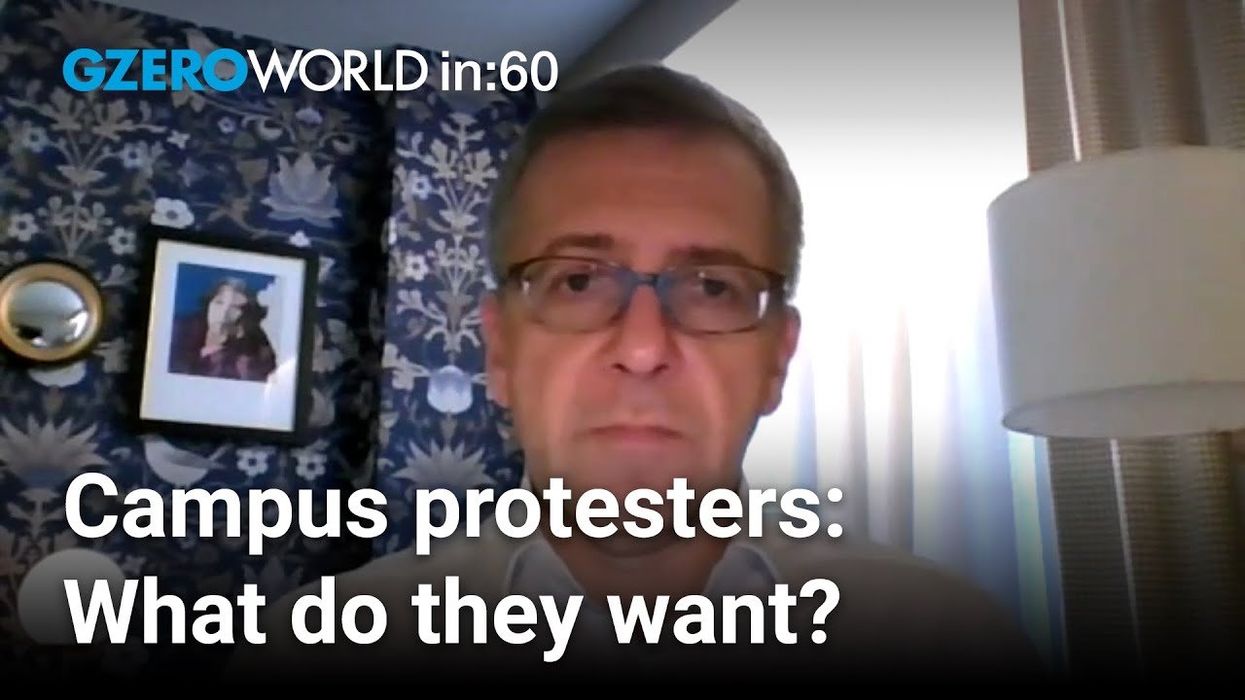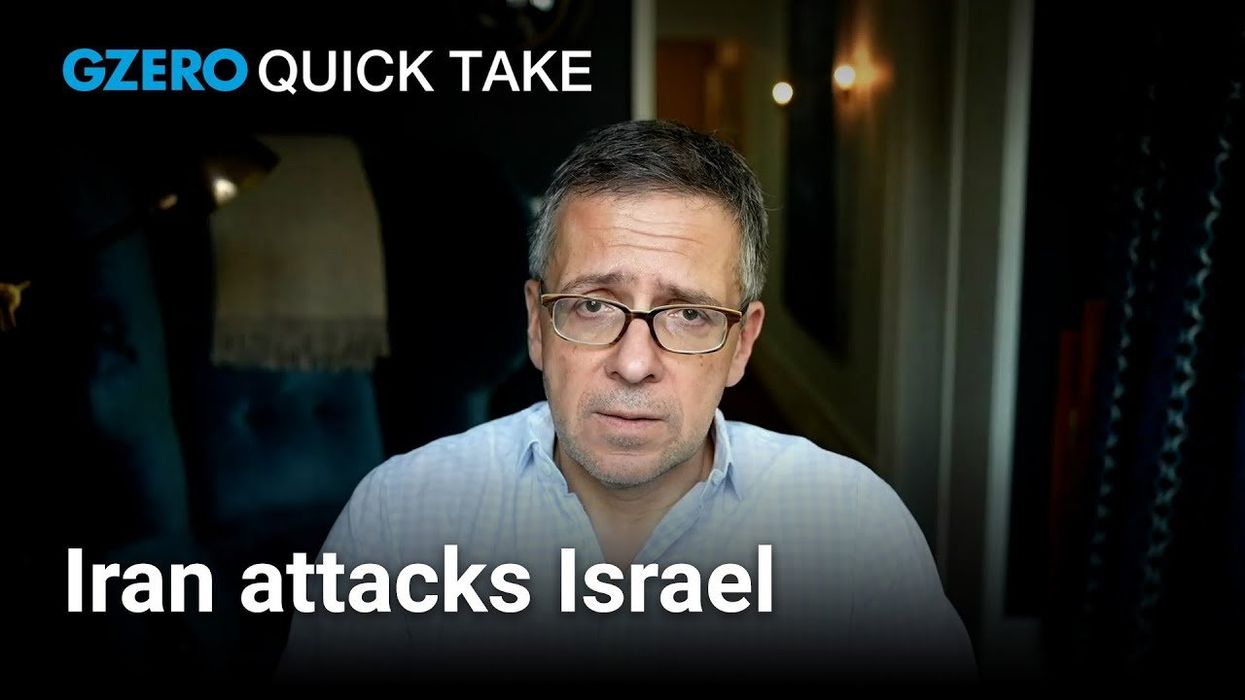ask ian
Columbia & Yale protests: What campus protesters want
Why hasn't the United Nations insisted on military observers in Gaza? What specific demands are being voiced by campus protesters at institutions such as Columbia and Yale? How will US aid package approval shake the dynamic of the Russia-Ukraine war? Ian Bremmer shares his insights on global politics this week on World In :60.
Apr 24, 2024




